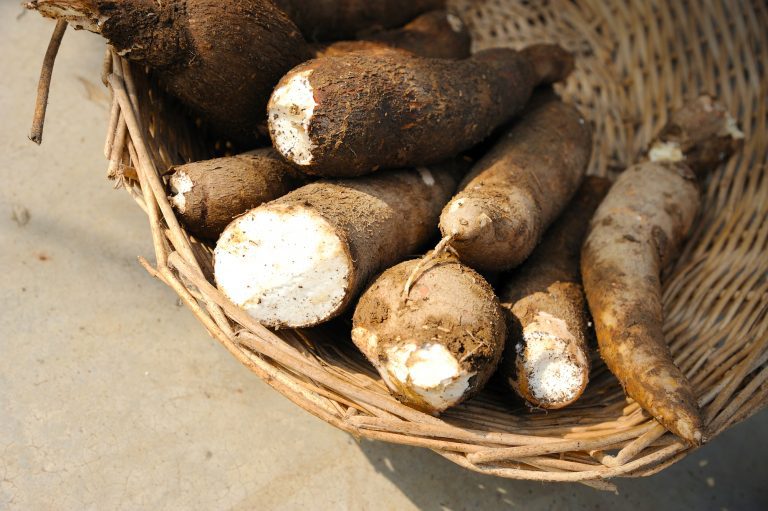Cassava (Manihot esculenta crantz) is a food plant domesticated by indigenous peoples in the Amazon for at least 9,000 years. In the Amazon, there are at least 140 identified native varieties, in addition to several agronomically developed cultivars.
Rich in carbohydrates, cassava is one of the most important plants for food in developing countries. In poorer regions, cassava is the main source of energy for the diet of more than 700 million people.
Cassava is a rustic tubercle that can be cultivated in chemically poor soils and, at the same time, withstand prolonged droughts. It is also highly resistant to pests.
Furthermore, the plant can be stored for a long period in the soil. The combination of these factors makes cassava a key plant for food security.





